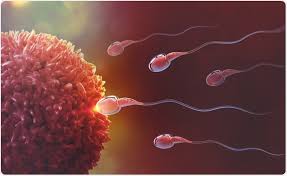The impact of Lifestyle and Environmental Factors on Male Fertility highlighted by Doctor
According to experts, there has been a noticeable decline in sperm count among men aged 25 to 40. Contributing factors include a lack of physical activity, unhealthy lifestyle changes, poor dietary habits, stress, environmental pollutants,

According to experts, there has been a noticeable decline in sperm count among men aged 25 to 40. Contributing factors include a lack of physical activity, unhealthy lifestyle changes, poor dietary habits, stress, environmental pollutants, and addictions. Toxic substances in the environment also play a role. To address this, adopting a balanced diet, engaging in regular exercise, practicing yoga and meditation for stress management, and avoiding misuse of drugs and steroids are essential.
Although for men, aging does not cause as drastic a fall in sperm count as the decline in eggs for women, there are many factors that affect sperm health. One of the primary factors is the changing lifestyle. Low sperm count (oligozoospermia) and the absence of sperm in semen (azoospermia) significantly affect fertility. Poor dietary choices and lack of exercise impact the male reproductive system. Consumption of fast food and processed snacks can lead to obesity and expose the body to harmful chemicals that reduce sperm production. Environmental pollutants, such as phthalates and bisphenol-A (BPA), disrupt hormone levels and degrade sperm quality. Stress increases cortisol levels, negatively impacting testosterone production and sperm health.” explains Dr Sulbha Arora, Clinical Director at Nova IVF Fertility, Mumbai, who advises men to consult fertility specialists for guidance.
Dr. Ankita Kaushal, Consultant – Fertility & IVF Specialist, Motherhood Fertility & IVF, Kharghar, Navi Mumbai. Said “Currently, not only females are experiencing fertility-related issues but even males too. There is a distressing decline in sperm count among men aged 25-40 due to factors such as environmental pollution, poor diet inclusive of processed foods, sedentary lifestyles involving the absence of physical activity, prolonged sitting, and stress (because of personal or professional reasons). It is necessary for men should adhere to a healthy diet, regular exercise, stress management techniques such as meditation, and minimize exposure to chemicals. Maintaining a healthy weight, and cutting down on alcohol, and tobacco use can also help to improve sperm quality and quantity. For tailor-made treatment options, visit a fertility consultant who will conduct tests and come up with tailored recommendations based on one’s requirements.”
Dr. Sulbha Arora further suggests that to improve sperm health, men should include a nutrient-rich diet with antioxidants and healthy fats. Consuming green leafy vegetables, whole grains, legumes, lentils, soybeans, eggs, bananas, walnuts, tomatoes, and pumpkin seeds is beneficial. Daily exercise, yoga, meditation, and abstaining from tobacco, smoking, and substance abuse are also advised. Maintaining an optimal BMI (20-25 kg/m2) and ensuring adequate sleep of 8-9 hours daily can significantly improve sperm count and semen quality. Men should focus on their sexual health just as women do.






